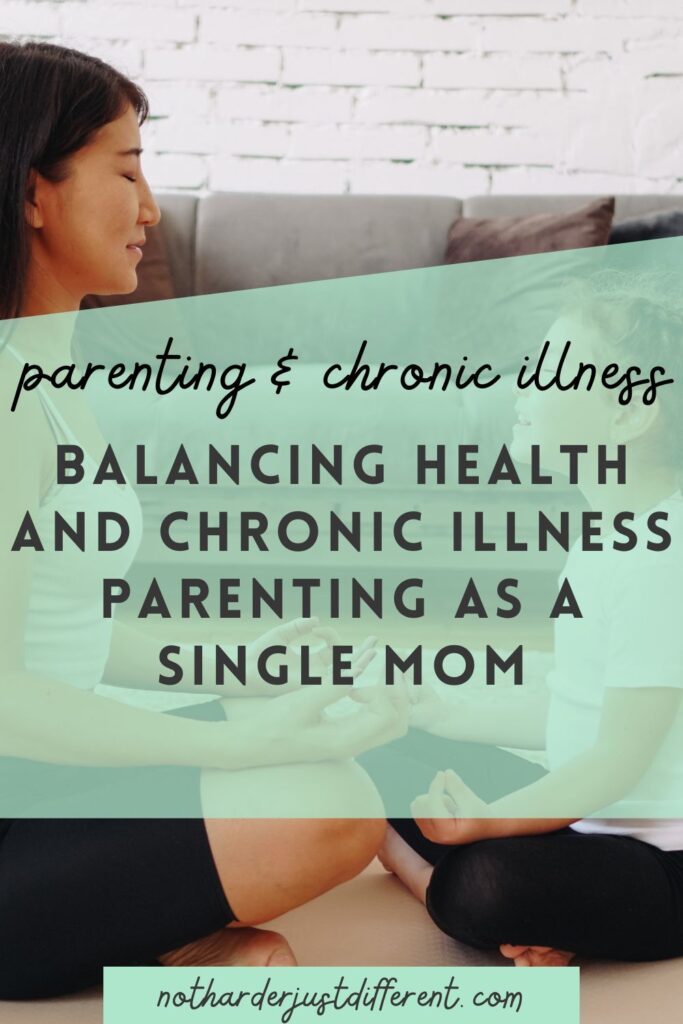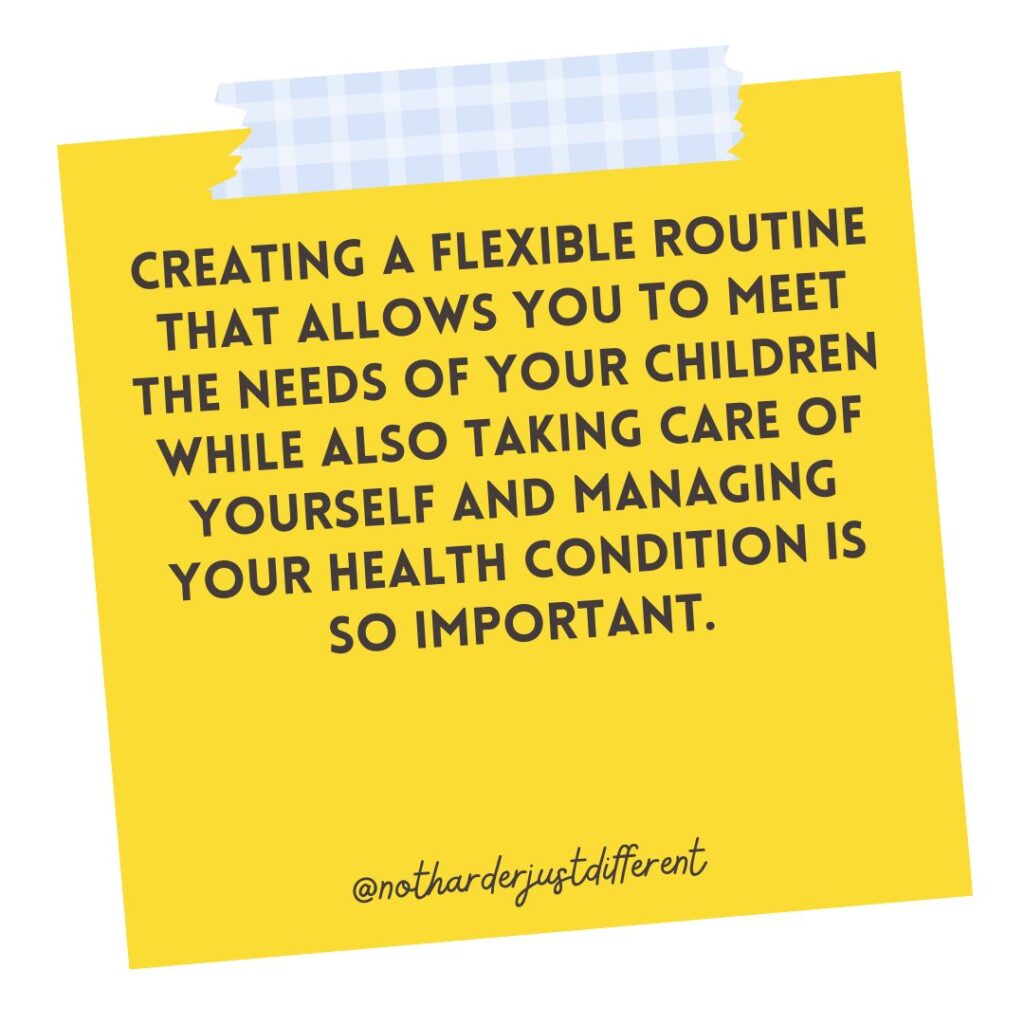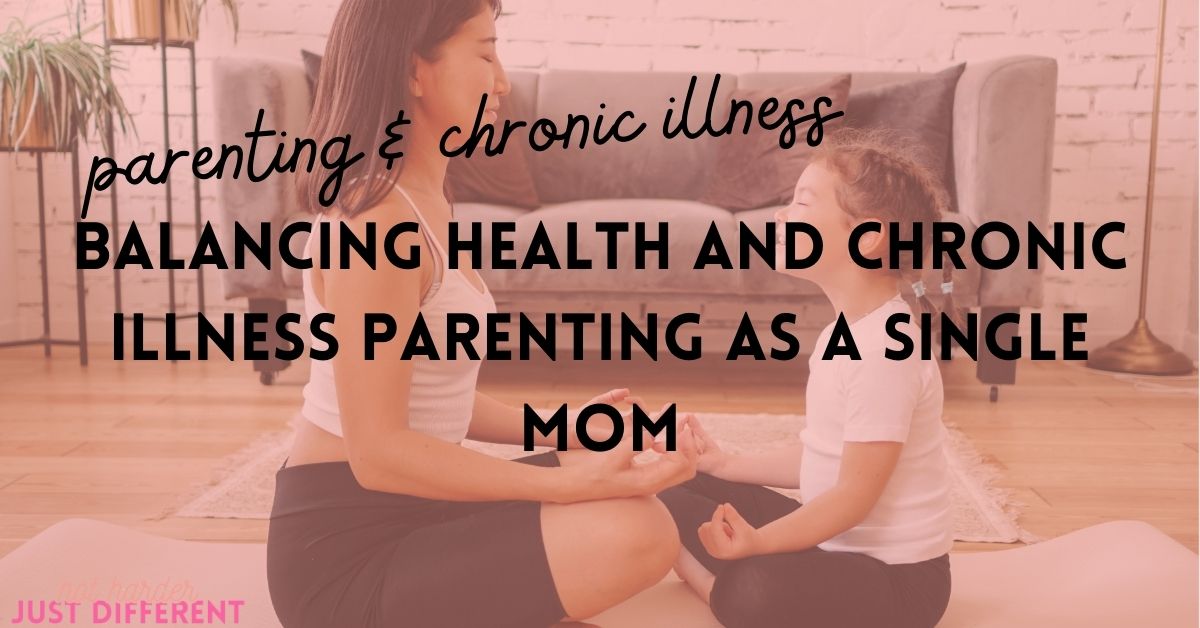Disclaimer: As a future Licensed Clinical Social Worker (LCSW) currently pursuing my master’s degree, I am passionate about sharing insights and information related to parenting, autism and homeschooling based on my personal experiences and research. However, the content shared on this blog is not intended to substitute professional advice, diagnosis, or treatment. Parenting is a deeply personal journey, and while I strive to provide valuable insights, every family and situation is unique. Readers are encouraged to consult with qualified professionals for personalized guidance tailored to their specific needs and circumstances.
Let’s have a heart-to-heart about navigating the challenging terrain of parenting solo while dealing with chronic illness. I see you, juggling doctor’s appointments, school runs, and bedtime routines all on your own. It’s no easy feat, but guess what? You’re doing an amazing job, and I’m here to offer some support and practical tips to help you thrive on this single mom chronic illness parenting journey.
Living with chronic illness as a single mom presents its own unique set of challenges. Believe me, I know! Bug is 10 and I’ve done it solo from day 1. From managing symptoms to finding the energy to keep up with your little ones, every day can feel like an uphill battle. But here’s the thing—you’re stronger than you think, and you don’t have to do it all alone. Together, we can explore strategies for prioritizing self-care, asking for help when you need it, and finding moments of joy and respite amidst the chaos of parenting solo.
So, grab a cup of whatever (I have my Diet Coke!), find a cozy spot to unwind, and let’s dive into this conversation about chronic illness parenting as a single mom. Whether you’re navigating the highs and lows of parenting with a chronic condition or supporting a child with health challenges of their own, I’ve got your back. Let’s explore practical tips and empowering insights to help you thrive as a single mom with chronic illness, because when it comes to parenting solo, you’re stronger than you know, and you’re never alone.

Chronic Illness Parenting as a Single Mom
Prioritizing Self-Care
As a single mom with chronic illness, prioritizing self-care is crucial for maintaining your health and well-being. We’ll explore practical self-care strategies tailored to fit into your busy schedule, from carving out time for relaxation to incorporating small moments of joy into your daily routine.
Quick Tips for Prioritizing Self-Care:
- Set Boundaries: Learn to say no to activities or commitments that drain your energy and prioritize activities that nourish your well-being.
- Schedule “Me” Time: Block out time in your schedule each day for self-care activities, whether it’s taking a relaxing bath, going for a walk, or enjoying a favorite hobby.
- Practice Mindfulness: Incorporate mindfulness practices into your daily routine, such as deep breathing exercises or meditation, to reduce stress and cultivate a sense of calm.
- Delegate Tasks: Don’t be afraid to ask for help from friends, family members, or hired assistance with household chores, errands, or childcare responsibilities.
- Celebrate Small Wins: Acknowledge and celebrate your achievements, no matter how small. Recognize the strength and resilience it takes to navigate parenting and chronic illness solo.
Building a Support Network
Navigating chronic illness parenting solo can feel overwhelming at times, but you don’t have to do it alone. We’ll discuss the importance of building a support network of friends, family members, and healthcare professionals who can offer assistance and encouragement along the way.
Quick Tips for Building a Support Network:
- Reach Out to Friends and Family: Don’t hesitate to lean on friends and family members for emotional support, practical assistance, or a listening ear when you need it.
- Join Support Groups: Connect with other single parents or individuals with chronic illness through online support groups, local meetups, or community organizations for mutual support and encouragement.
- Find a Therapist: Consider seeking therapy or counseling to help you navigate the emotional challenges of parenting with chronic illness and develop coping strategies for managing stress.
- Engage with Healthcare Professionals: Build a collaborative relationship with your healthcare team, including doctors, therapists, and specialists, who can offer guidance and support for managing your health condition.
- Explore Community Resources: Investigate local resources and organizations that offer assistance to single parents, such as childcare subsidies, financial aid programs, or support services for individuals with chronic illness.

Creating a Flexible Routine
Balancing the demands of parenting and chronic illness requires flexibility and adaptability. Creating a flexible routine that allows you to meet the needs of your children while also taking care of yourself and managing your health condition is so important.
Quick Tips for Creating a Flexible Routine:
- Prioritize Essentials: Identify the most important tasks and responsibilities each day, such as meal preparation, childcare, and self-care, and focus on completing those first.
- Be Open to Adjustments: Embrace flexibility and be willing to adjust your routine as needed to accommodate unexpected challenges or changes in your health condition.
- Break Tasks into Manageable Steps: Break down larger tasks or projects into smaller, more manageable steps to prevent feeling overwhelmed and maintain a sense of progress.
- Use Visual Reminders: Use visual cues, such as calendars, to-do lists, or smartphone apps, to help you stay organized and keep track of important appointments, deadlines, and tasks.
- Set Realistic Expectations: Be realistic about what you can accomplish in a day and give yourself permission to let go of perfectionism. Focus on progress, not perfection, and celebrate your efforts along the way.
Communicating with Your Children
Talking to your children about your chronic illness can be challenging, but it’s essential for fostering understanding and empathy. We’ll discuss age-appropriate ways to communicate with your children about your health condition and involve them in your self-care routine.
Quick Tips for Communicating with Your Children:
- Be Honest and Age-Appropriate: Tailor your conversations about your chronic illness to your children’s age and level of understanding. Be honest and straightforward, but also reassure them that you are taking care of yourself and have a plan for managing your health.
- Encourage Questions: Encourage your children to ask questions about your illness and provide age-appropriate explanations to help them understand what’s going on.
- Validate Their Feelings: Validate your children’s feelings and reassure them that it’s okay to feel scared, worried, or confused about your illness. Offer comfort and support as they navigate their own emotions.
- Involve Them in Your Care: Involve your children in your self-care routine when appropriate, such as preparing healthy meals together or practicing relaxation techniques as a family. This can help them feel connected and empowered to support you in your journey.
- Seek Additional Support if Needed: If your children are struggling to cope with your illness, consider seeking additional support from a therapist or counselor who specializes in working with families dealing with chronic illness.
Seeking Practical Support
Don’t hesitate to reach out for practical support when you need it. Whether it’s asking friends or family members for help with childcare or seeking community resources for single parents with chronic illness, there are plenty of options available to lighten your load and make parenting solo a little bit easier.
Quick Tips for Seeking Practical Support:
- Ask for Help: Don’t hesitate to reach out to friends, family members, or neighbors for practical assistance with tasks such as childcare, grocery shopping, or household chores.
- Explore Community Resources: Research local resources and organizations that offer support to single parents, such as food banks, childcare assistance programs, or transportation services.
- Consider Online Services: Take advantage of online services and delivery options for groceries, household essentials, and other necessities to save time and energy.
- Connect with Other Single Parents: Reach out to other single parents in your community or online for mutual support, advice, and camaraderie.
- Take Care of Your Finances: Stay on top of your finances by budgeting carefully, seeking financial assistance if needed, and exploring options for income support or benefits available to single parents with chronic illness.
Navigating single parenthood while managing chronic illness is undoubtedly challenging, but it’s also a testament to your resilience, strength, and unwavering dedication to your children. By prioritizing self-care, building a strong support network, creating a flexible routine, communicating openly with your children, and seeking practical support when needed, you’re demonstrating incredible courage and determination every single day. Remember, you’re not alone on this journey. Reach out for help when you need it, celebrate your victories, and embrace the moments of joy and connection that parenthood brings. You are an inspiration, and you’ve got this!

